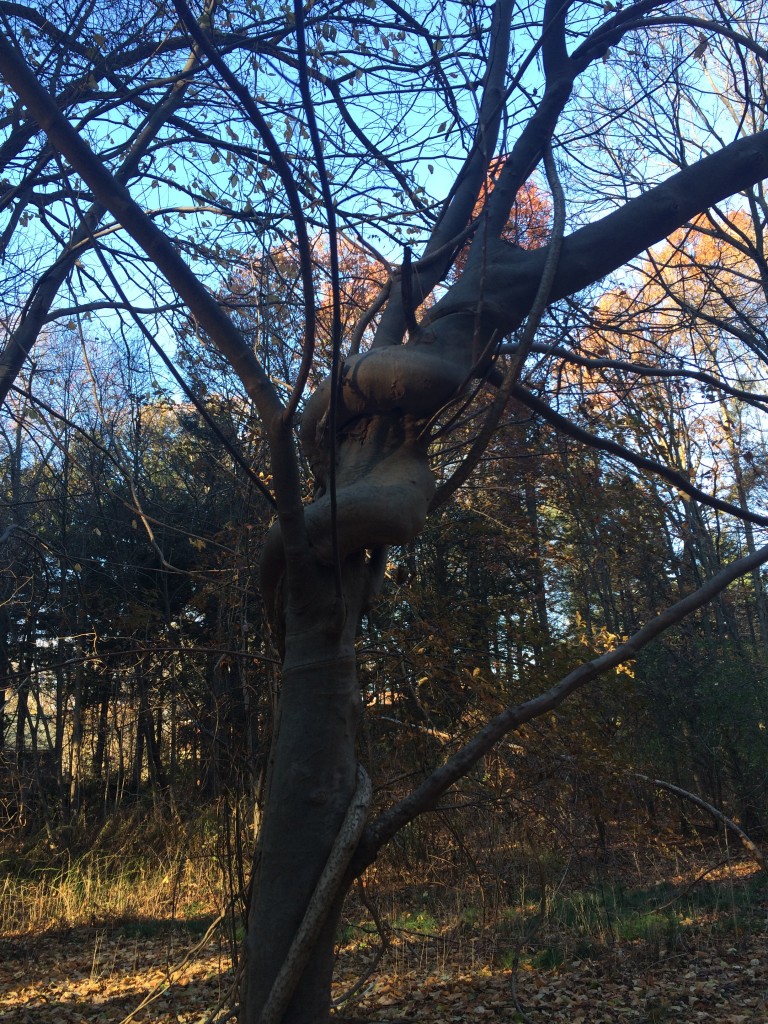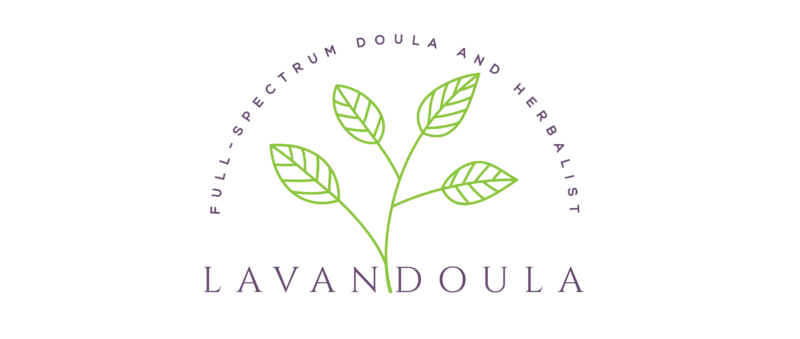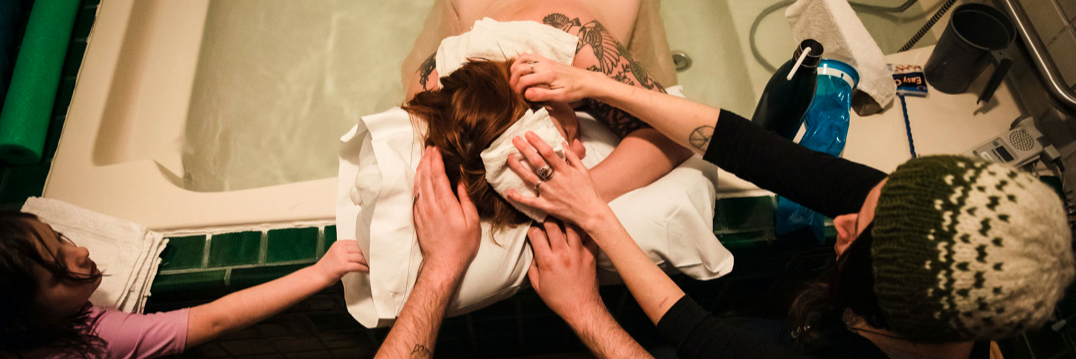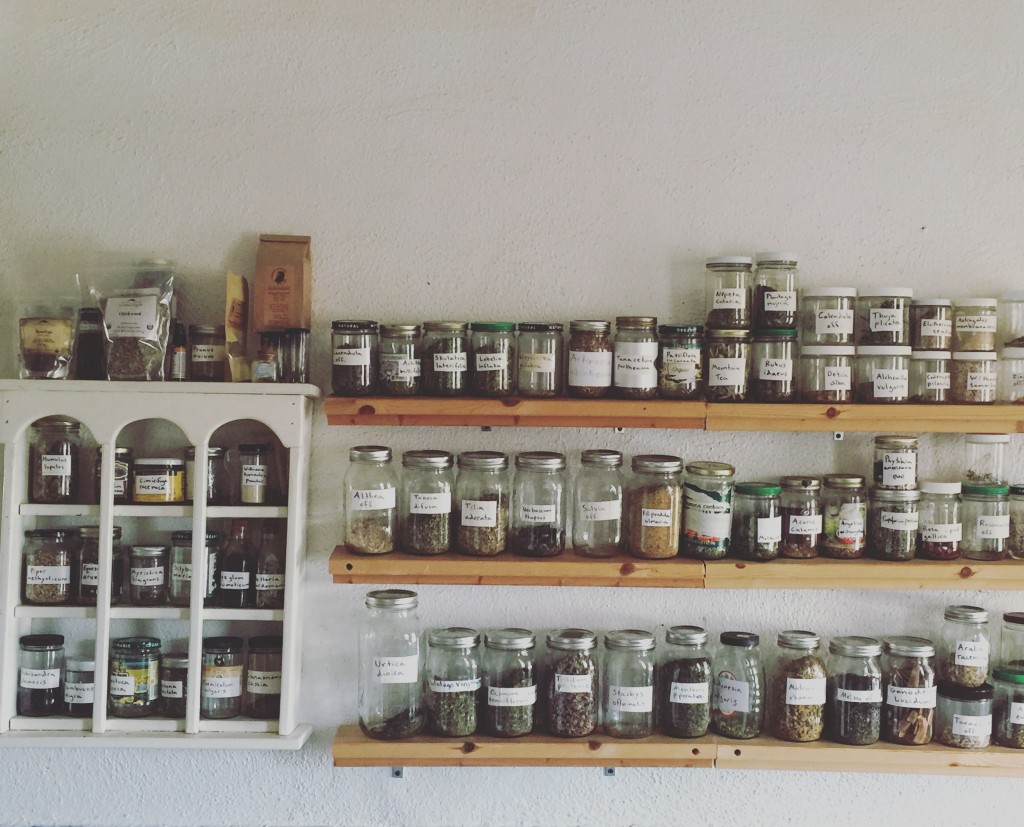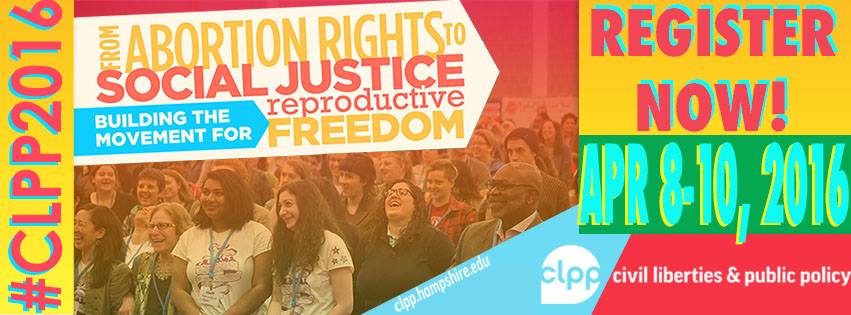An interactive community built around supporting those who experience pregnancy loss, miscarriage, abortion or any kind of reproductive loss. This event will be held in Natick, MA, at the Common Street Spiritual Center, between June 16 and 18 2016.
Holding Our Space to Honor Pregnancy Loss
Holding Our Space is the community spearheaded by my friend and local doula Jacqui Morton. This project intends to bring more public conversation to the experiences of pregnancy loss, miscarriage and abortion, as well as space to grieve and find community and camaraderie with others who have gone through the same.
With a small grant from the Abortion Conversations Project, and collaboration with the Common Street Spiritual Center in Natick, MA, Holding Our Space will be hosting an event from June 16-18, 2016. There will be a common space for community to meet, grieve, share stories and work toward healing. Abortion doula and activist Brenda Hernandez will open the space with yoga on Friday night. Doulas will be available throughout the event to provide companionship, a listening ear or a hand to hold.
For more information, or to get involved with Holding Our Space, check out the tumblr and Facebook pages.
Roslindale Apothecary
Herbs to Hold, Post Abortion
I have an upcoming class at the CommonWealth Center for Holistic Herbalism on herbal support after abortion. More about the class and signup can be found here. Class will be Wednesday, April 20th from 7-9pm. Find us at 25 St. Mary’s Court in Brookline, MA (accessible off the green line – the school can be found in the alleyway behind the Whole Foods).
While volunteering with the Boston Doula Project, and working around Boston as a birth doula, a significant amount of the stories I hear from clients involve ending wanted pregnancies due to significant health problems, or needing to have a clinical abortion after experiencing an incomplete miscarriage. From ectopic pregnancies that significantly threaten the life and health of the mother, to chromosomal abnormalities that are considered “incompatible with life,” the path to abortion and pregnancy loss is rarely simple for anyone.
In this class, I hope to dismantle some of the stigma surrounding abortion and pregnancy loss. I will give an “abortion 101” for everyone, a general background on the available options for ending a pregnancy at various gestational states in the Boston area. We will learn how to know which providers are really providers, and which may be giving out inaccurate health information. Then we will focus on how to support someone you love (or yourself!) when going through this experience.
Herbs can be used to support us emotionally, as well as physically build us back up after blood loss, or help support the body in getting back to a hormonally non-pregnant place. With one in three cis-women experiencing an abortion in her lifetime, this class will definitely touch upon ways to support yourself or somebody you care about.
Support the Eastern Massachusetts Abortion Fund at the “Bowl-A-Thon” this year!
Boston Doula Project volunteers are organizing a team for this year’s National Network of Abortion Fund’s major fundraiser, the bowl-a-thon. Now, although Boston is considered a fairly “liberal” city, and we are home to several bowling alleys (6 or 7 of them?) none have been willing to host this fundraiser event for fear that abortion fundraising is too controversial!
That doesn’t stop the activists in our area from getting the work done, though! Boston’s “bowl-a-thon” will be hosted at the Milky Way in JP and is a compilation of karaoke singing, pizza eating and games (corn hole, board games??!)
Learn more about getting involved, fundraising, donating, and about the EMA Fund in general, here!
#CLPP2016 is coming up!
The Civil Liberties and Public Policy program at Hampshire College hosts an amazing reproductive justice conference every spring. I’m lucky to be one of the presenters this year, with three other amazing volunteers from the Boston Doula Project. Our workshop will be on Sunday morning from 9-10:30am, titled, “So your friend is having an abortion. How can you help? A doula perspective.”
Herbal Aid for Fertility Support
Herbal Aid for Conscious Conception. CommonWealth Center for Holistic Herbalism in Brookline, MA.
With our culture’s strong focus on birth control and avoiding pregnancy, many people are left in the dark when they actually WANT to become pregnant! With the trend toward older ages for first-time parents (especially around Boston), many are wondering how to prepare their bodies best for parenthood. Why does it seem like everybody has babies so easily while others struggle for years, considering invasive fertility treatments? What does it even feel like to ovulate?
Come learn how to lay the groundwork for healthy fertility cycles, nourish your gametes and give yourself the best chance to have a healthy baby with the help of medicinal herbs and foods. This class is taught from the perspective of a birth doula who has years of experience helping parents (of many ages) have babies around Boston, MA.
Wednesday, January 20th, 2016
7:00pm – 9:00pm
25 St. Mary’s Court, Brookline
The fee for this class is $20. RSVP at this link.
Making Seed Bombs at Make/Shift
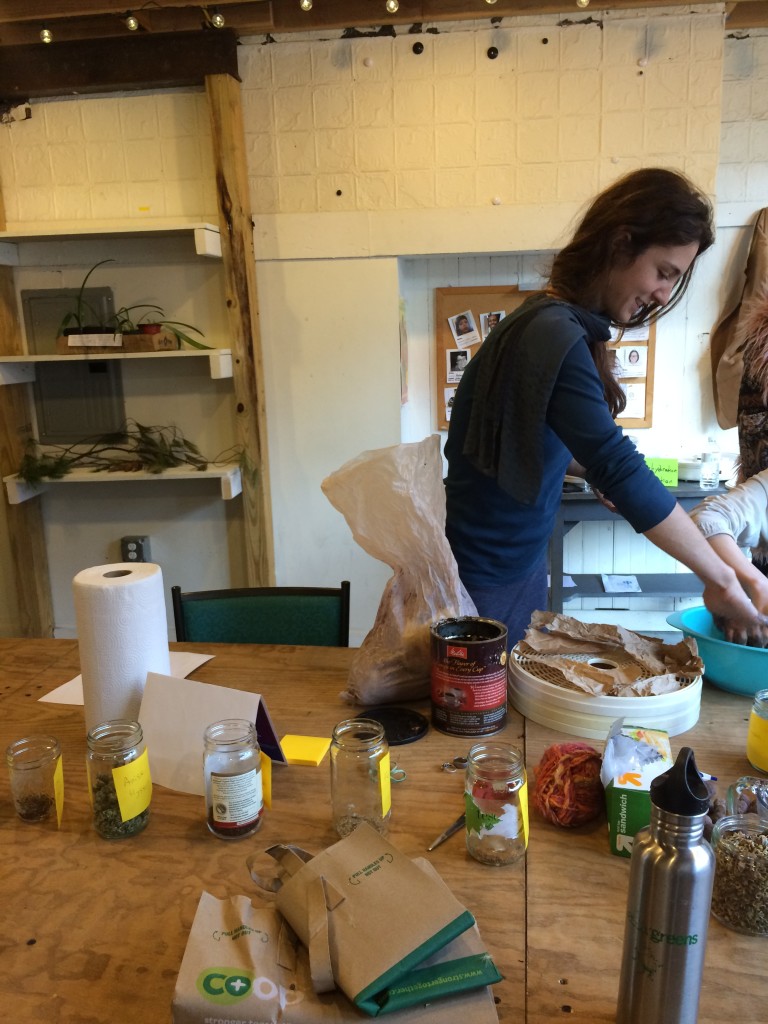
Herbalists Gavin McCarthy, Danielle at Growing Habits and I have begun to share space at Make Shift – a coworking office in Boston’s South End. Make Shift is the next iteration of the space that used to house the volunteer collective Lucy Parson’s Center. I used to walk from the Fenway to Back Bay for the Lucy Parson’s Center’s radical movie nights with friends. We’d watch a documentary, stay for the discussion, and schmooze through their library. It’s neat to be involved in the same location in a different generation! (Lucy Parson’s moved to my old block on Centre Street in Jamaica Plain while I was living in Hyde Square.)
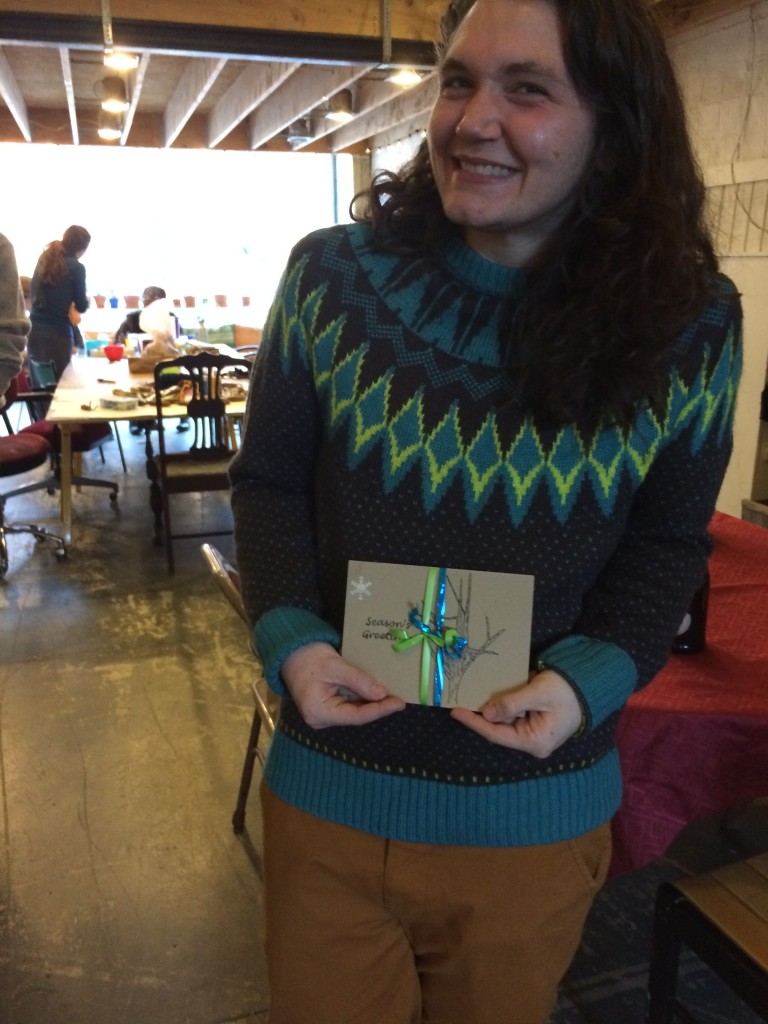
As part of our “welcome to the new space” event/solstice party, Danielle really wanted to have a seed bomb crafting space. What’s a seed bomb, you ask? A seed bomb is a little clump of compost, clay and the seeds from local (this part’s important) plants that you can toss in areas that could really use a little medicinal plant love. Abandoned lots, edges of MBTA fences and cracks in the sidewalks are all excellent locations to propagate these little nuggets. Danielle brought seeds from many local medicinals: calendula, echinacea, yellowdock, and Gavin contributed stuff from the home garden in Roslindale: blue vervain, anise hyssop and more.
To make your own seed bombs, use the following materials:
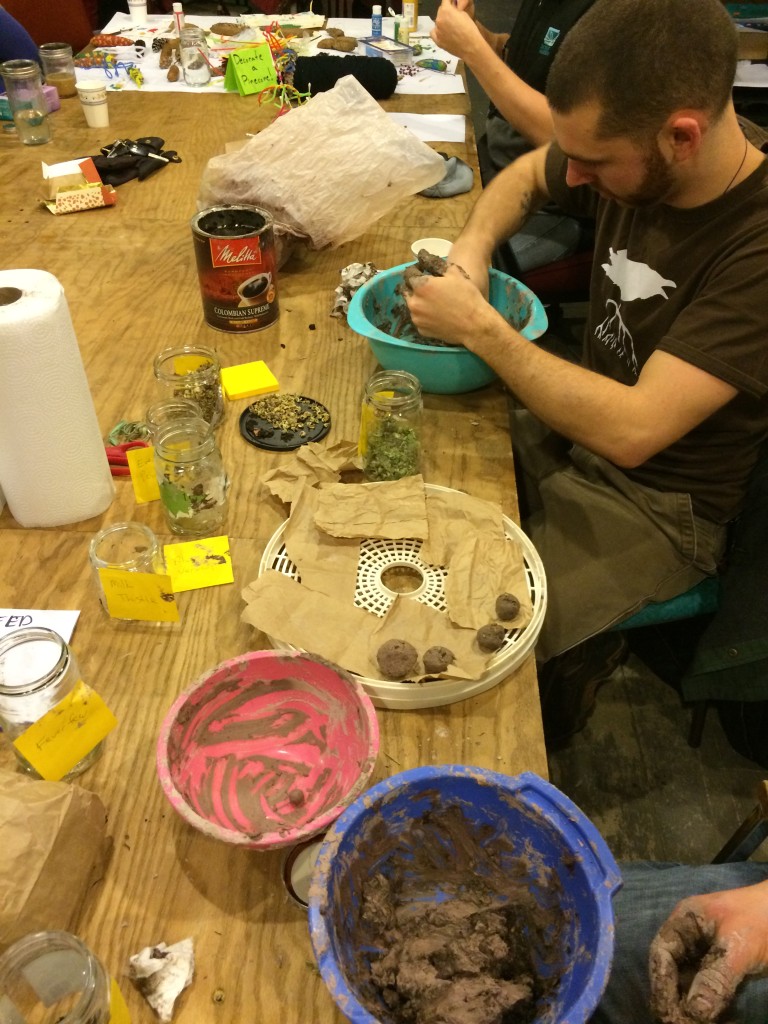
- -Potter’s clay
- -Compost
- -Seeds from local plants
- -Water (to moisten your compost and clay, which you may or may not need!)
- -Bowls and a dehydrator or place to leave them out to dry
Mix clay and compost about a 1-2.5 ratio and add seeds. Smooth them into little balls, and be really careful trying to clean the clay out (read: do not try to do that in your sink- scrape it out into the compost or trash)! We had two dehydrators going at this event, so that folks could take their seed bombs home in a few hours.
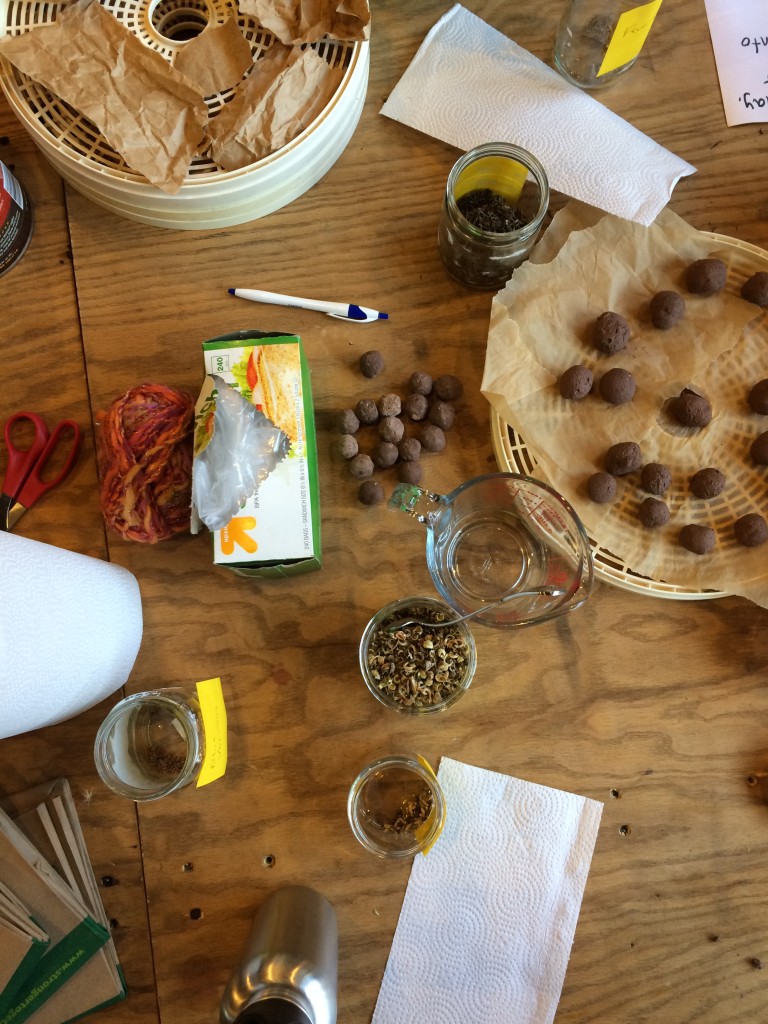
You can leave them out to air dry if you’d like, especially if you’re in a dry climate. The clay is to help give the bombs shape, but also to keep the seed from spreading over the ground too soon. When the spring comes, the rain will wash the clay and seeds into the soil and give them a chance to grow. Until then, the ground should stay frozen (but it’s been an incredibly warm winter so far). If the seeds are spread now, animals will likely get to them and eat them first (which is totally fine, but you don’t get to look at beautiful anise hyssop flowers that way)!
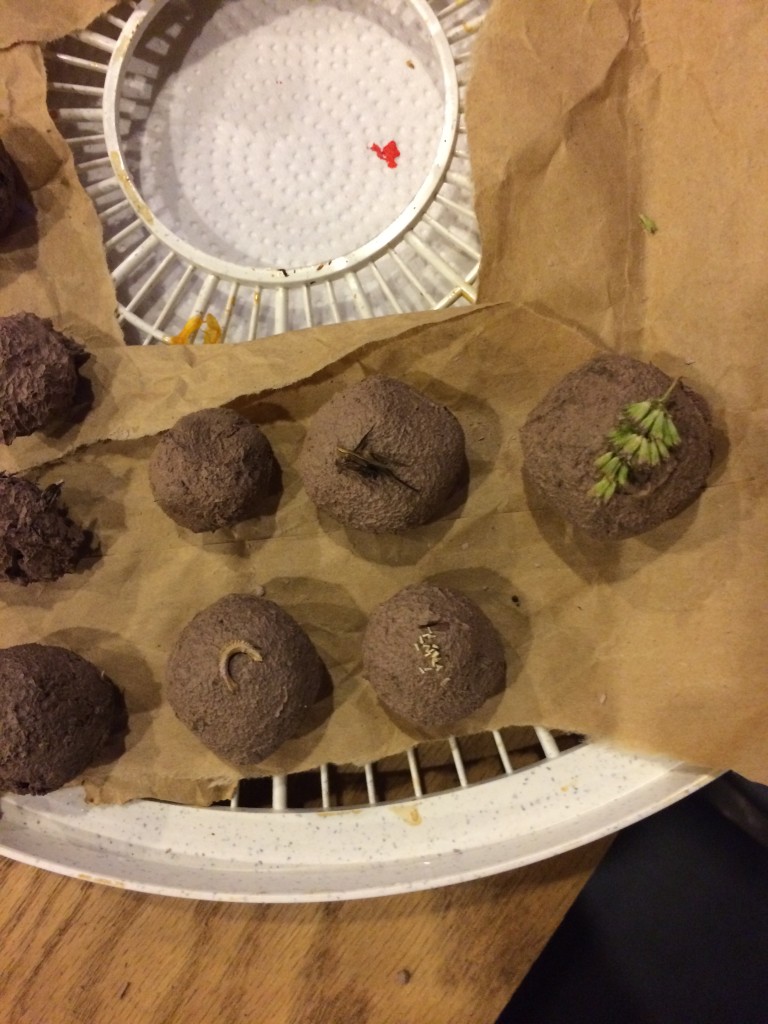
For guerrilla gardeners in an urban environment, these seeds might be spread in an area with clean soil, but it’s more likely that they will not. Medicinal plants are helpful to pollinators, animals and soil quality, too, especially if herbalist humans aren’t harvesting them for personal use! Our hope is that these may be spread in many locations – Our own gardens with clean soil, friend’s houses, edges of city properties, depleted soil and Boston neighborhood community gardens.
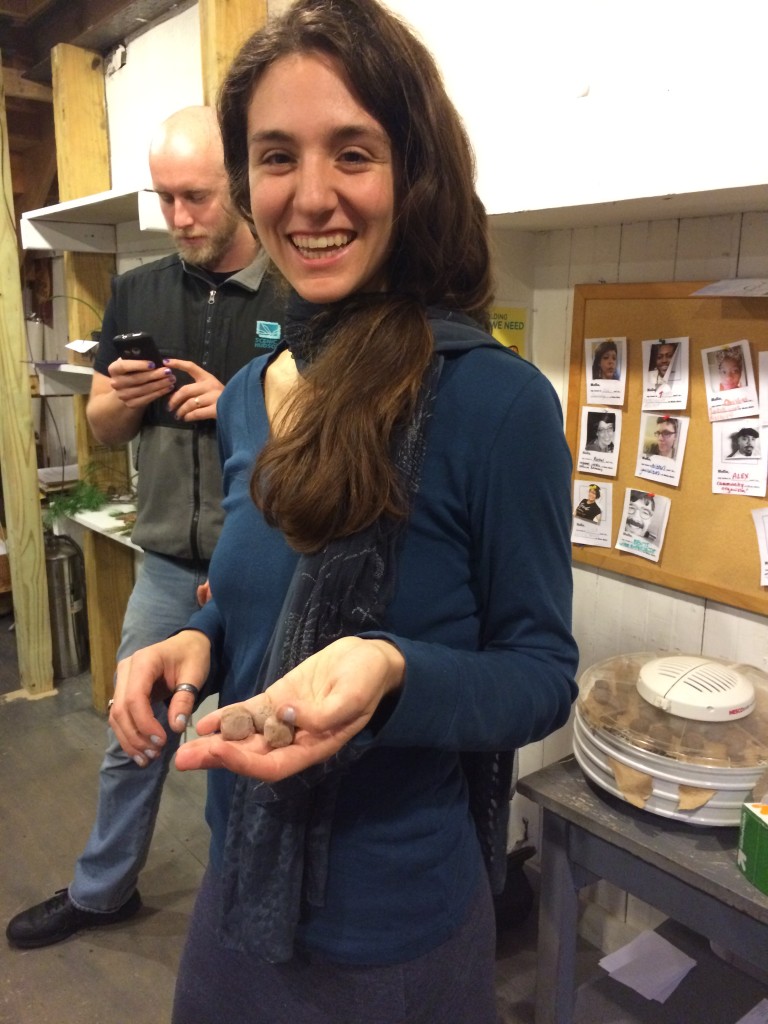
Keep an eye out for what’s next at Make Shift. The three of us will be teaching classes, hosting crafty events and herbal how-to’s. You’re all welcome to come check it out!
Herbs for a postpartum birthparent!
I frequently make up batches of nourishing galactagogue herbal tea blends for postpartum clients. Galactagogue is a kooky herbalist term for plants that encourage the production of breast milk. My most recent batch was this:
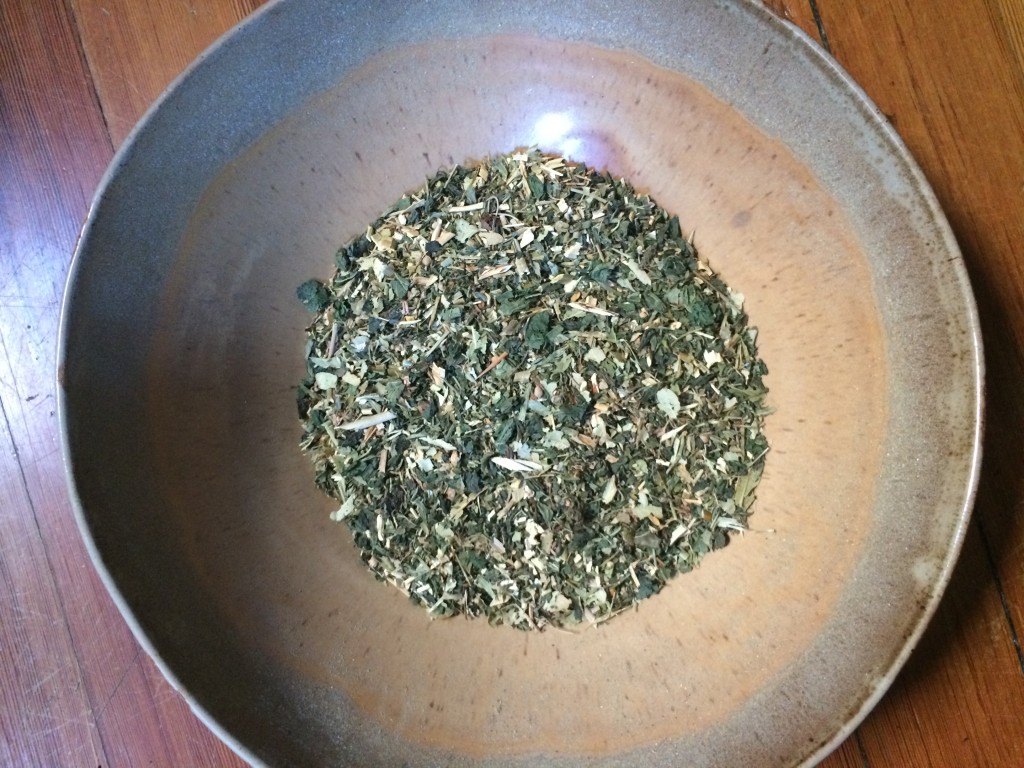
It contains goat’s rue, nettle, linden (leaf and flower), marshmallow (root), moringa and fenugreek. Should be steeped overnight (or however long you can manage, because really, whatever you manage to do postpartum is appropriate!). Maximum mineral extraction happens the longer the tea is steeped, and the cooled water allows the mucilaginous components of both the linden and marshmallow to come through. These are extra moistening, and extra soothing to frayed nerves of under-slept new parents. Many folks rely on herbs to support nursing, and this blend is much stronger and more effective than its grocery store counterpart. I had a client exclusively breastfeeding her twin boys with the help of a blend like this!
I also made this new mom an herbal postpartum sitz bath:
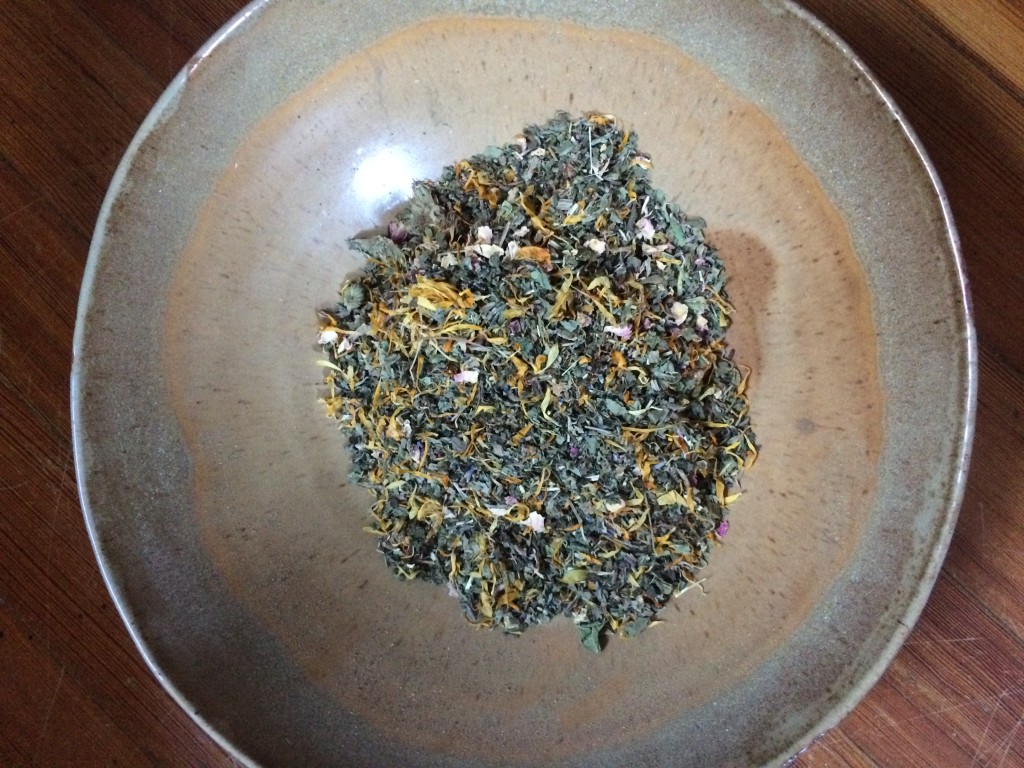
This recipe includes plantain and comfrey leaves, calendula blossoms, rose petals, lavender flowers and yarrow. I love making these baths because the calendula, rose and lavender give it such beautiful color. Plantain contains the tissue proliferant allantoin, which gently encourages skin to heal (especially nice if stitches were needed). Other herbs encourage healing (yarrow), are antimicrobial (lavender), and gently astringent to tighten and tonify tissue back to its comfortable state. These herbs can be steeped for 20 minutes, like a tea, strained well, and added to a sitz bath or used in a peri-rinse bottle.
My ceramic herb mixing bowl is a product of Liz Kinder pottery. I used to sell her pots when I worked at Wild Indigo Boutique in Boston’s South End.
An Umbilical Tree
This past week, I was excited to host my friend Anabel, of La Loba Loca, who was in town to facilitate some skillshares at local colleges. Seriously- if you’ve got folks who are interested in sexual health, herbalism, and community-based care, bring her to your community! We met last year at CLPP and, together with others, organized a workshop in Los Angeles this summer.
We realized we were born less than two weeks apart, both cling to yarrow as we meet (and love to meet) TONS of people in our work, shared our 1970’s feminist/herbalist/queer book collections and spun wool together. I also took her to my favorite part of Boston, the Forest Hills Cemetery. We walked around the small chunk of local wilderness behind the gravesite and talked about how we best like to dry out an umbilical cord when preparing the placenta for encapsulation. She knew someone who would tincture the cord, separately, and suggests using it when a birth parent needs to be away from their child. Connection medicine.
Loba and I found this tree and stopped to check it out for a moment.
